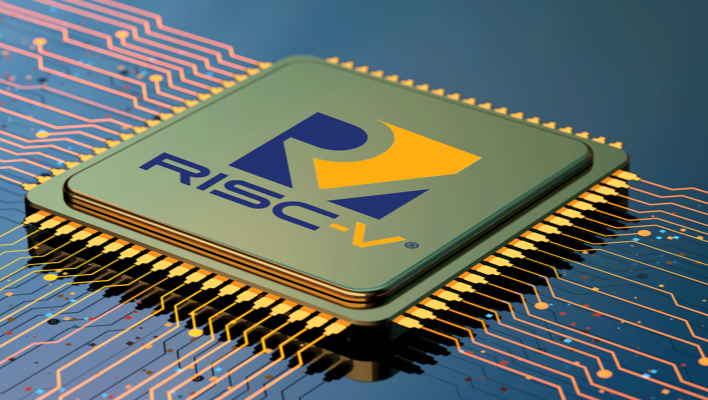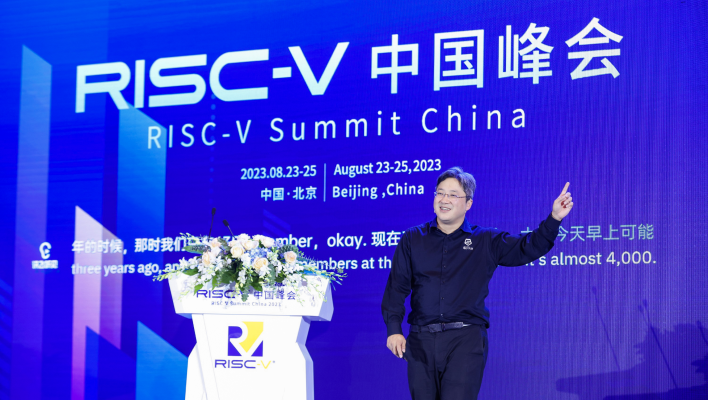RISC-V Issues Open Standards Warning As US Lawmakers Mull Restrictions

The technological cold war between the US and China has seen massive trade restrictions placed on electronics, particularly high-end GPUs for datacenters but even components as basic as memory. This has naturally led the US and China to close off their respective computing markets, and one of the next targets appears to be RISC-V International, the company that maintains the open standard RISC-V CPU architecture. The situation has become so urgent that RISC-V International published an open letter arguing for the benefits of RISC-V and tacitly denied it created a door into American tech for China.
RISC-V is an open standard instruction set architecture or ISA that any company can use for free to design CPUs. This is in stark contrast to x86, which is completely owned by AMD and Intel, as well as ARM, which is owned by Arm the company. While many different companies (such as Apple and Samsung) design processors based on ARM, they need to purchase the license to do so from Arm, and even then there are things in the ARM architecture that licensees cannot alter.
Certain American Representatives and Senators have expressed concerns over RISC-V on the grounds that it could pose a security issue. In a statement to Reuters, chairman of the House Foreign Affairs Committee Michael McCaul argued that China "is abusing RISC-V to get around US dominance of the intellectual property needed to design chips." Senators Marco Rubio and Mark Warner each expressed concerns over "open source" hardware and software, in particular RISC-V.

RISC-V is an open standard instruction set architecture or ISA that any company can use for free to design CPUs. This is in stark contrast to x86, which is completely owned by AMD and Intel, as well as ARM, which is owned by Arm the company. While many different companies (such as Apple and Samsung) design processors based on ARM, they need to purchase the license to do so from Arm, and even then there are things in the ARM architecture that licensees cannot alter.
Certain American Representatives and Senators have expressed concerns over RISC-V on the grounds that it could pose a security issue. In a statement to Reuters, chairman of the House Foreign Affairs Committee Michael McCaul argued that China "is abusing RISC-V to get around US dominance of the intellectual property needed to design chips." Senators Marco Rubio and Mark Warner each expressed concerns over "open source" hardware and software, in particular RISC-V.

Although RISC-V is officially open standard and not open source as Senators Rubio and Warner have charged, RISC-V International did in fact refer to RISC-V as an "open source, ratified ISA" prior to 2023. Ostensibly, RISC-V International's reason to change its language was to clarify that while the ISA is free to use, "implementations [of RISC-V] may be open source or commercial," just like how ARM is commercial. However, increasing anxieties over open source technology may have been another motivation to style RISC-V as open standard rather than open source.
For its part, RISC-V International's statement, though silent on the particulars of the US-China trade war (not even once mentioning China), categorically denies that it provides "chip design, open source cores, proprietary IP, or implementations." In its view, RISC-V is more akin to Ethernet and USB. Unlike Arm, RISC-V doesn't offer a stock core like Cortex, so companies making RISC-V chips have to do much of their own work to even make a basic CPU. But regardless, RISC-V is now in the crosshairs of American lawmakers, and it may prove intractable for RISC-V International.
For its part, RISC-V International's statement, though silent on the particulars of the US-China trade war (not even once mentioning China), categorically denies that it provides "chip design, open source cores, proprietary IP, or implementations." In its view, RISC-V is more akin to Ethernet and USB. Unlike Arm, RISC-V doesn't offer a stock core like Cortex, so companies making RISC-V chips have to do much of their own work to even make a basic CPU. But regardless, RISC-V is now in the crosshairs of American lawmakers, and it may prove intractable for RISC-V International.

